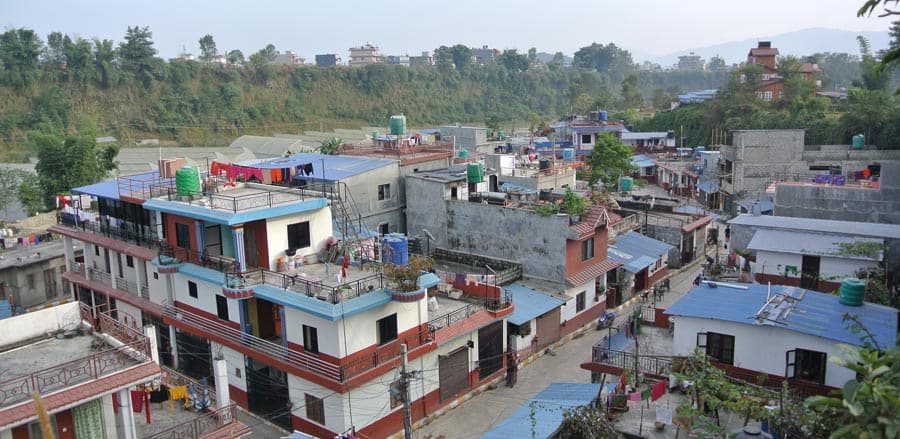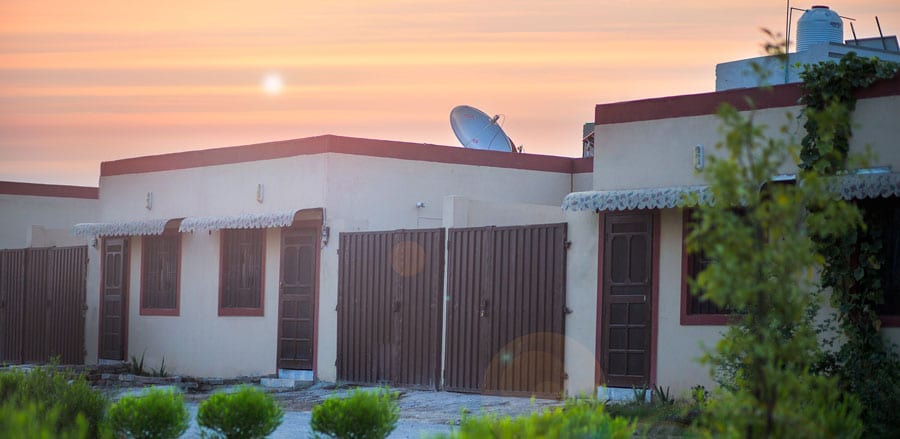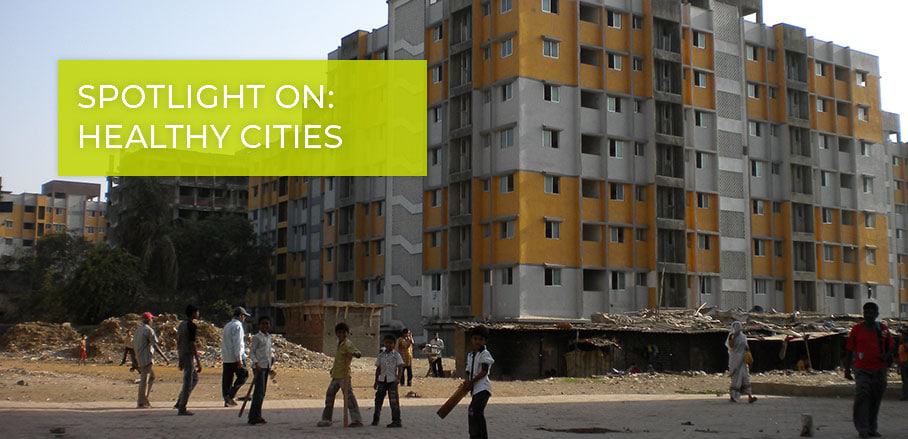Housing as Healthcare: COVID-19, Affordable Housing, and Urban Resilience in Asia
To ensure that cities are healthy, residents need access to affordable housing, argues Andrew Jones from Reall – a social enterprise, innovator and impact investor that has been at the forefront of affordable housing for decades.
Prior to the coronavirus pandemic, the endemic lack of decent housing in low-income countries already constituted a global emergency. At least 1.2 billion people live in substandard housing, and 300 million new homes are required by 2030 to bridge the deficit. As more people around the world are asked to stay at home and practice social distancing to contain COVID-19, it is more apparent than ever that adequate housing is a matter of life and death.
The linkage of housing with health, security, and resilience is especially pertinent in South and Southeast Asia – two regions characterised by large housing deficits, densely populated cities, high levels of poverty and malnutrition, inadequate public health facilities, and continued formation of overcrowded urban slums. While national lockdowns have mitigated the spread of COVID-19, the potential remains for explosive growth in infection numbers across Asian geographies.
This article explores the significance of housing for tackling disease in Asian cities, and the essential role affordable housing must play in the region’s post-pandemic recovery as a form of sustainable, resilient infrastructure. It does so through the lens of Reall, an innovator and investor in affordable homes for people on low incomes in urban Africa and Asia.
Reall evidences and demonstrates that investment in affordable housing is a commercially viable, scalable proposition with impacts across the Sustainable Development Goals. Reall operates in several South Asian and Southeast Asian countries, including a priority focus on India, Nepal, and Pakistan.

Affordable housing development by Reall partner Lumanti in Pokhara, Nepal. © Reall, 2019
Informal Settlements
The most effective strategies to avoid COVID-19 are regular hand washing, avoiding close contact with others, and sheltering in place. For those fortunate enough to live in comfortable, secure housing with adequate space and services, this advice is easy to follow.
For the millions of people residing in inadequate housing across South and Southeast Asia, these measures are impossible to implement – especially for those living in informal settlements and slum conditions. The World Bank reports that 64 per cent of all people who live in urban slums are in Asia, due to rapid rural-to-urban migration.
In India, over 65 million people reside in informal settlements deemed ‘unfit for human inhabitation’, with up to 53 million living below the poverty line. Their homes are typically characterised by substandard materials, inadequate sanitation, overcrowding, and poor ventilation, drainage, and sewerage facilities.
Residents must often depend on informal health facilities, and use overcrowded or poorly maintained public transport systems to commute long distances. Such environments act as incubators for infectious diseases, and COVID-19 will spread rapidly if it takes root in dense Asian slums such as those found in Bangkok, Dhaka, Karachi, Jakarta, Manila, or Mumbai.
Housing as Healthcare
In these environments, housing is both a prevention of and cure for COVID-19. A safe and sanitary home with running water and clean energy saves lives. Furthermore, it acts as a frontline defence against future pandemics when delivered at scale and embedded in secure, rationally planned communities with social infrastructure.
In the short term, Asian governments must ensure vulnerable people are protected from homelessness and provided with shelter. Looking beyond the current crisis, housing sector policies and interventions must radically change to prioritise liveability, affordability, environmental sustainability, energy efficiency, clean hygienic services, and adequate space.
Reall works towards this mission by global brokering the raise of housing issues on public and private sector agendas; intervening to focus housing markets on the bottom 40 per cent of the income pyramid; de-risking affordable mortgage finance for low-income groups; and partnering with ‘best in class’ developers to deliver quality housing on the ground at a commercially viable price point.
For example, Reall’s partner in Pakistan (Ansaar Management Company (AMC)) develops safe and sanitary housing for people on low incomes at a cost of less than 10,000 US dollars per home to the occupant, contributing to sustainable and healthy communities.
AMC emphasises high quality design of both the houses and their surrounding neighbourhoods, working within or close to large cities such as Faisalabad, Lahore, Multan, and Peshawar. A common practice among Reall’s partners, AMC works with a publicly owned bank to provide affordable mortgages that are geared exclusively towards people in the bottom 40 per cent, offering plans for formally and informally employed people alike.
This model is a holistic solution to COVID-19 and the deeper challenges of urbanisation in Asia, delivering household impacts such as health, food security, gender equality, and financial inclusion, while also contributing towards market-level impacts including job creation and macroeconomic growth. When developed with climate-smart materials and green technologies, affordable housing is a route to environmental resilience and energy efficiency.

Affordable housing development by Reall partner AMC in Faisalabad, Pakistan. © Reall, 2018
Affordable Housing as Resilient Urban Infrastructure
The COVID-19 pandemic is a powerful reminder that densely populated cities are at the frontline of global crises. Quality housing enables low-income citizens to protect themselves against disease, maintain their economic livelihoods, mitigate the threats of a changing climate, and better address the inequities of urban governance. In short, affordable housing is a form of resilient, urban infrastructure that must be at the centre of all economic recovery programmes across Asia and low-income geographies.
COVID-19 will result in huge economic impacts, and the UN estimates income losses of at least 220 billion US dollars in emerging countries. This will necessitate innovative new approaches to urban development, and Asia will desperately need sustainable infrastructure solutions to help cities build back better and greener.
Alongside conventional infrastructure projects such as roads and energy, affordable housing should be prioritised as a solution that is attractive for private sector investment while driving social, economic, and environmental impacts. The housing construction, evidence generation, and global influencing work of Reall in Asia and beyond is essential for proving this impact and a pathway to scale.
COVID-19 is an acute emergency, but it also raises profound questions about the chronic ill health of the international housing ecosystem. More than 2.5 billion urban dwellers will be added to the global population by 2050, and a significant proportion of them will live in South and Southeast Asia. We must act now to build the resilient cities of the future and safeguard against future crises. As Reall’s work demonstrates, affordable housing must be an integral pillar of post-COVID urbanism.
